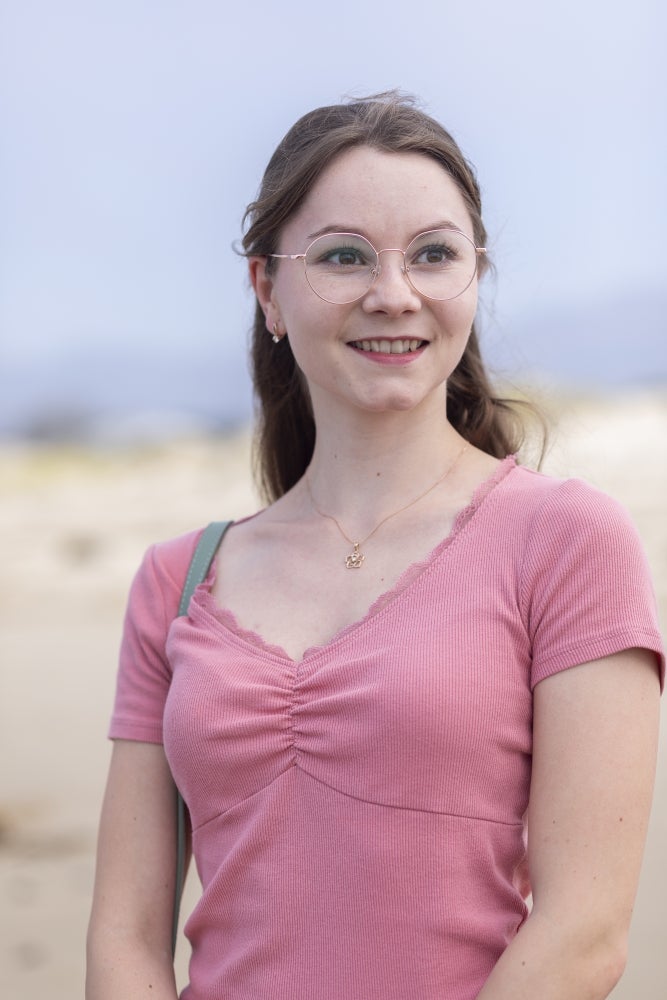
Link to Doctoral Studies
Nora Schopp, a fourth-year Ph.D. candidate in the Department of Chemistry and Biochemistry, has received a 2021-23 Link Foundation Fellowship Award. One of three Fellows selected from applicants across the United States and Canada, she is the first graduate student from UC Santa Barbara to win the prestigious award.
“I am super proud of her,” said Thuc-Quyen Nguyen, director of the campus’s Center for Polymers and Organic Solids. “Nora is one of the best graduate students in our department, and it has been a great joy working with her.” Nguyen’s group conducts research on organic electronic devices and Nguyen has served as Schopp’s mentor over the course of her graduate studies in organic photovoltaics.
“Receiving the Link Energy fellowship is such an honor and a wonderful recognition of my work,” said Schopp. “The generous fellowship allows me to focus on advancing my research full time. As a consequence, my schedule has become a lot more flexible, and I am able to invest more time in professional development, campus involvement and volunteer work in addition to my research. I am very grateful for these great opportunities and the generous support of the Link Foundation.”
Schopp received her Bachelor and Master of Science in chemistry from RWTH Aachen University in Germany before coming to UC Santa Barbara to pursue her doctorate in material chemistry. Her interest in implementing sustainable solutions and energy-efficient technologies in the face of climate change stems from her experience growing up in a heavily industrialized small town that has a long history of mining, she said.
“I learned about local environmental concerns at a very young age,” she explained. “This focus on environmental issues certainly has shaped me and is one of the main reasons why I have been drawn to sustainable chemistry and material science. This interest, coupled with today’s global need for safe and sustainable energy technologies drew me to organic photovoltaics. These carbon-based solar cells promise integrated energy-harvesting solutions thanks to their unique properties of being lightweight, flexible, this and, in some cases, even transparent.”
Schopp said she looks forward to transition into full-time academic research for the remainder of her Ph.D. program. After graduate school, she hopes to make an impact in sustainable energy through research and development.
“The OPV research field is evolving at a rapid pace,” she noted. “In the short term, I hope to contribute to this movement by focusing on transparent and high-performance solar cells.”
The Link Foundation supports programs that foster the theoretical basis, practical knowledge and application of energy, simulation and ocean engineering and instrumentation research, and seeks to disseminate the results of that research through lectures, seminars and publications.
The Link Foundation Energy Fellowship is open both to international and domestic graduate students to foster education and innovation in the area of societal production and utilization of energy. The award consists of a two-year fellowship of $32,500 per year for two years.



